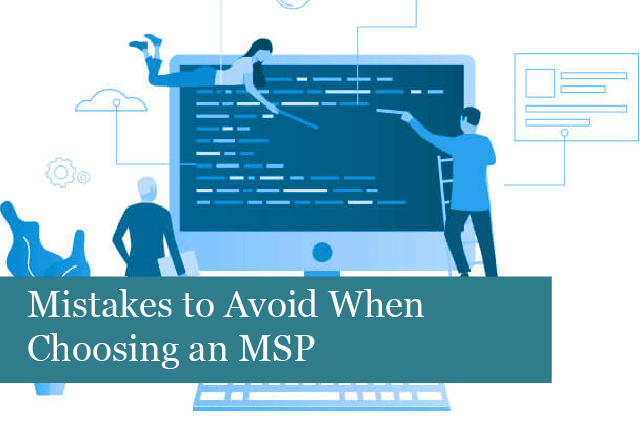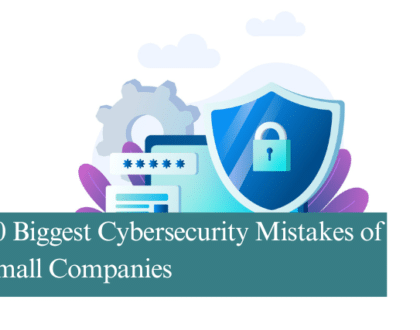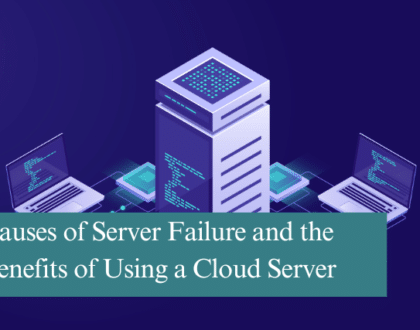
Managed IT service providers (MSPs) have been becoming more popular in recent years. They provide services that would otherwise be done by an in-house IT team. And they save companies money by not having to hire and support an in-house network and IT team.
Is your company searching for a managed IT service provider? If so, there are some common mistakes you’ll want to avoid. The goal is to find the right service provider for your company.
We’ve created a list of the most common mistakes that can arise and how to avoid them when choosing an MSP for your business.
- No Strategy in Place to Hire IT Help
Many companies believe that when hiring an MSP, they can pass all technical concerns onto the service provider. MSPs can handle a broad range of technical issues; however, if your employees contact the MSP regularly for even small tech problems, the costs of hiring help could skyrocket.
So, it’s important to have a plan in place. Employees should know when it’s appropriate to contact the MSP for assistance. They should be informed on how to handle some tech issues internally before requesting help from the IT service provider.
If the company has techy employees inside the company, they may be assigned to help with smaller, less serious tech issues.
With a strategy in place, it’s possible to design an IT program that boosts productivity and saves on IT support costs.
- Internal Staffing Fails to Coordinate with the MSP
Another common mistake a company may make is not having the right employees in place to work with the MSP. Once the in-house IT team has been replaced by the MSP, it’s imperative to have employees with the right skills who can interface with the MSP.
These employees need the right experience and skills to handle certain issues and know when to reach out to the MSP for assistance.
Having a balanced team of employees and an MSP means you can have the best program in place. However, if the right balance is not maintained, then problems are sure to crop up between the company and its MSP.
- Agreement Terms Are Confusing
The next common mistake is that agreement terms can be confusing. The contract between the MSP and the company defines the terms of service. So, it’s imperative that company decision-makers understand the terms of the contract and make certain key employees are also aware of these terms.
Employees who regularly interact with the MSP must know when and where services are available, how to contact the MSP, and what actions trigger additional fees.
In addition, the agreement with the MSP should also include a non-disclosure agreement. The MSP must sign this document before working with sensitive data. It’s also important that feedback channels are set up with the service provider.
For instance, if a certain network component isn’t working properly, the business needs to know how to report it, how concerns are handled, and who handles the feedback.
- Underestimating Future Impact of Business Changes
As a business scales, so will its IT requirements. The MSP must be able to support these changes. Company decision-makers should discuss business expansion, new product additions, external infrastructure changes, and other issues that could impact the MSP’s service and support in the future.
It’s essential that the MSP is able to support the business and meet the necessary IT requirements as the company grows.
- Keeping Essential Information from the MSP
Another common problem when hiring an MSP is that a company may withhold essential information from the MSP. A business must be transparent with the service provider during the initial negotiations, establishing the contract, and once services have begun.
Businesses may not tell the MSP about additional locations that must be supported, employee changes, or unexpected business issues. The MSP must be aware of this and more to support a company properly.
Keeping information from the MSP could otherwise end in huge costs for the business.
- Believing all MSP Billing Models are the Same
Each MSP is a unique entity and offers different services and billing models. When choosing the right MSP, it’s important to review all the billing options and packages offered during the vetting process. Choosing the right package is imperative when it comes to a company’s bottom line.
One way to solve this problem is by measuring the predicted usage of IT support against the various billing models. This way, you can avoid unexpected costs in the future.
- Hiring an MSP That’s Not Familiar with Your Industry
Each industry has its own IT service requirements, which cover everything from specific software to industry security regulations, and more. If a company hires an MSP that’s not familiar with its industry, chaos will result. It’s worse to hire an MSP with no industry knowledge than to have no service provider in the first place.
When searching for the right MSP, focus on those that have teams experienced in your industry. This is imperative for companies in financial, pharmaceuticals, and other industries.
Having an MSP who understands a company’s industry saves time, and money and ensures the business meets all security regulations.
- Focusing Only on Saving Money
When choosing to outsource IT services, some businesses are tempted to choose the cheapest provider. However, cheaper does not always equate to superior IT services.
Choosing a cheaper provider can mean additional costs that aren’t covered in the outsourcing budget. The key is to choose an MSP that can offer a cost-effective strategy and high-quality services for the company’s IT management.
Summing It Up
The key is to find an MSP that offers a price the company can afford, along with the services it needs. A business needs to focus on choosing an MSP that has the resources to support its needs. The MSP must also have knowledge and experience within the company’s industry.
Avoiding the most common mistakes can result in finding the right MSP at a price the company can afford. The two can forge a successful partnership that supports both sides of the IT service equation.
Recommended Posts

10 Biggest Cybersecurity Mistakes of Small Companies
18th April 2025

The Importance of Planning in Business IT Solutions
11th April 2025

